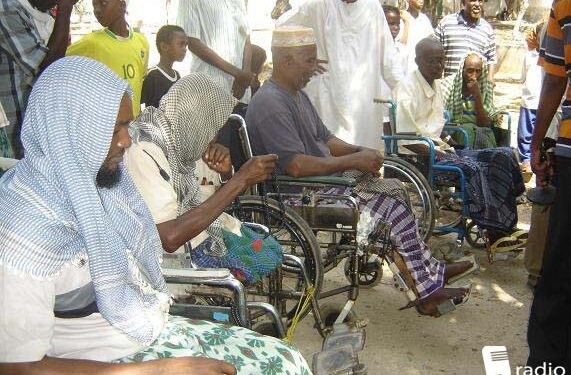
Tuesday June 20, 2023

Kaydka Ergo
Hassan Mohamed Ali has been stuck in his house in Dhusamareb, central Somalia, since the beginning of May when flash floods cut off the roads. Because he is disabled, he has not been able to get to his small shop where he earns a living for his family.
Hassan normally earns about three dollars a day to provide two meals for his wife and seven children. The floods also damaged some of the food stuff he had on sale. They are now short of food.
“The problem is that there is no food available because the place we get food was flooded. There is no one to give you anything, no organisation to support you, and no one even to visit you. I have no option but to just stay at home,” he said.
Hassan’s family moved to stay with relatives for a month at the height of the floods and went back home on 3 June as waters receded. They found their house made of concrete, wood and corrugated iron had been partially washed away.
“I am asking people close to me to give me a loan, telling them I will repay them when the floods recede and I can get back to work. Let alone the water outside, the water in the house and shop are causing us a big problem,” he said.
Hassan, whose left leg became paralysed after being shot during conflict between armed militias in 2013, set up his business six years ago with an investment from his relatives. He is calling on the Dhusamareb administration to deal with the floods so that businesses can resume.
Meanwhile, Nadifo Hashi Jaynani, who is paralysed in both legs, normally goes to the market to beg for food from the stall owners to feed her five children. The flooding has cut off their source of food.
“Whatever I could get from business women I would use to cook for the children, such as half a kilo of pasta or some potatoes, that’s what we cooked. Now I’ve even lost that. Because of the water I haven’t been able to leave the house since the rainfall started,” she said.
Nadifo, a widow, said she is having to ask her not well off mother in Mogadishu to send them money to eat one meal a day. She and her two older children who help push her wheelchair are stranded at home.
“As their father died, I am their mother and father, and now I have been affected by this problem,” she said.
Nadifo became disabled after being injured in a car accident 20 years ago. They moved to Dhusamareb in 2011 from Mogadishu, where insecurity and financial difficulties beset the family. She turned to begging in the market three years ago after her husband, the income earner, died.
The chairman of Galmudug disabled association, Ahmed Isse Abdi, told Radio Ergo that the floods in Dhusamareb had disproportionately affected the 650 disabled people living in Dhusamareb. Some of them had left and could not return home for fear of further flooding.
“As far as we are aware at least 35 disabled people were injured by the floods. There are about 150 people who have been displaced from their homes and have not yet returned,” said Ahmed.
He said disabled people living in other towns in Galmudug such as Guriel, Adado, Balanbale and Galkayo are also facing problems caused by heavy rainfall.